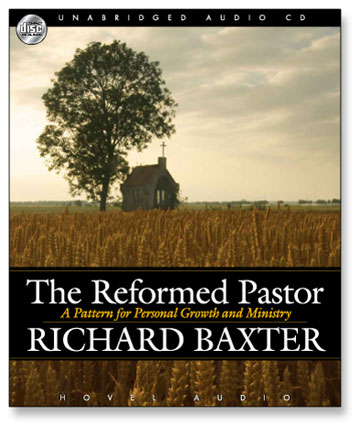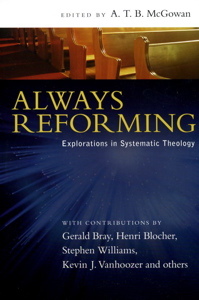The start of the letter to Romans must be understood in light of the Greek cultural structure of Relational Reciprocity. This idea says that since Paul is an Apostle, he is like the Romans caretaker and was indebted to care for them, thus the reason for the letter as well as the mentioning of a ‘visit.’ The Roman Christians knew that he was in debt by the Gospel to them. The Greeks could not understand life without Relational Reciprocity.
Therefore, the entire letter to the Romans can be understood in light of Relational Reciprocity. The missionary purpose, the apologetic purpose, and the pastoral purpose can all be encompassed within the idea of Relational Reciprocity.
For someone to write a letter to someone offering wisdom and knowledge (in other words… advice) was to give them a gift. It was in effect showing that he wanted to have a relationship.
As an example, Paul’s letter shows them the Gospel in light of their specific needs as the Church in Rome. But Paul goes above and beyond this in the letter to the Romans and at the end of the letter mentions the Roman Christians supporting him on his trip to Spain. This is the idea of Relational Reciprocity. Paul writes them a letter and hope to visit them to impart some spiritual gift to them…. and in light of that, Paul hope that their will reciprocate and support his mission to Spain.
This is not a bad thing. This is the way the Greek culture works.
Notice this in Romans 15…
“25 At present, however, I am going to Jerusalem bringing aid to the saints. 26 For Macedonia and Achaia have been pleased to make some contribution for the poor among the saints at Jerusalem. 27 For they were pleased to do it, and indeed they owe it to them. For if the Gentiles have come to share in their spiritual blessings, they ought also to be of service to them in material blessings. 28 When therefore I have completed this and have delivered to them what has been collected, I will leave for Spain by way of you. 29 I know that when I come to you I will come in the fullness of the blessing of Christ.”
Read through this letter by Cicero as an example of Relational Reciprocity…
I had set out to write on a larger subject and one more in keeping with the books of which I have published enough surely in the recent past, when I was recalled from my course by your request, my dear Trebatius. You will remember that when we were together in my Tusculan villa and were sitting in the library, each of us according to his fancy unrolling the volumes which he wished, you hit upon certain Topics of Aristotle which were expounded by him in several books. Excited by the title, you immediately asked me what the subject of the work was. And when I had made clear to you that these books contained a system developed by Aristotle for inventing arguments so that we might come upon them by a rational system without wandering about, you begged me to teach you the subject. Your request was made with the modesty which you show in everything, yet I could easily see that you were aflame with eagerness. Not so much to avoid labor as because I thought it would be for your good, I urged you to read the books yourself, or acquire the whole system from a very learned teacher of oratory whom I named. You had tried both, as you told me. But you were repelled from reading the books by their obscurity; and that great teacher replied that he was not acquainted with these works, which are, as I think, by Aristotle. I am not indeed astonished in the slightest degree that the philosopher was unknown to the teacher of oratory, for he is ignored by all except a few of the professed philosophers. The philosophers deserve less excuse for their neglect, because they should have been attracted, not only by the matter which he has discovered and presented, but also by an unbelievable charm and richness in his style. When you repeated your request again and again, and at the same time were afraid of annoying me that I could easily see I could no longer refrain from paying the debt, lest the interpreter of the law should be treated unlawfully. For taking into consideration that you had often written at great length for me and my friends, I was afraid that my hesitation might be thought to be ingratitude or discourtesy. But you yourself can best testify how busy I was when we were together; and when I left you, and set out on my way to Greece, since neither the state nor my friends required my services and I could not with honor live in the midst of the strife of arms, supposing that I might have done so with safety, and on reaching Velia I saw your family and your home, I was reminded of this debt, and was unwilling to refuse even your silent demand for payment. Therefore, since I had no books with me, I wrote up what I could remember on the voyage and sent it to you, in order that by my diligence in obeying your commands I might arouse you though you need no admonition to keep my business in mind, But it is now time to turn to our appointed task.
[Body of the Letter]
Rules for this division of a speech, in which pity, anger, hatred, envy and other emotions are aroused, are given in other books, which you can read with me when you wish. But for the object which you had in mind, this should be enough and more than enough to satisfy your desires. For in order not to omit anything which had to do with the discovery of arguments in any fashion, I have included more than you requested, and have done what liberal sellers are wont to do; when they sell a house or farm, reserving title to minerals and timber, they make a concession to the buyer and allow him to keep something which seems to be put in the right spot as an ornament.” So in addition to what we were bound to sell you, as it were, we wished to give you some ornaments not called for in the contract.
That’s the letter.
1) Relational debt defined
2) Tailored-payment given
3) Mis-balance noted (an overpayment)
4) Therefore Cicero asks for something back
On a whole, Paul’s letter seems to match Cicero’s in structure as well as content (in the sense of concepts being exchanged).



